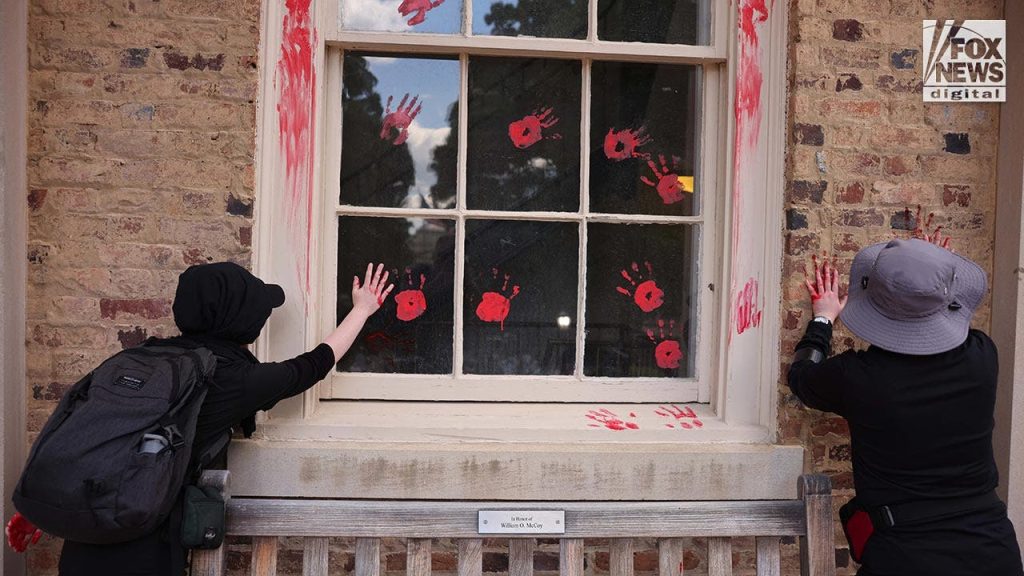Anti-Israel demonstrators gathered at the University of North Carolina at Chapel Hill’s campus ahead of the commencement ceremony. The protest was organized by the campus chapter of Students for Justice in Palestine and celebrated suspended seniors who participated in the protest. The group marched through the campus, carrying picket signs and tents, to the Morehead-Patterson Bell Tower near Kenan Memorial Stadium, hours before the graduation ceremony. Protesters chanted, threw red paint on stairs, made handprints on pillars, and wrote on the building using chalk. A moment of silence was held to honor those killed in Gaza since Hamas terrorists attacked Israel.
During the demonstration, student protester Samuel Scarborough highlighted the difficulties faced by students who had been banned from campus or arrested but were unable to graduate. UNC graduate Alicia Buckminster expressed her hope that the class of 2020 would be able to celebrate their graduation properly. Law enforcement eventually intervened and moved protesters away from the area after the demonstration. This protest followed a previous clash between anti-Israel protesters and law enforcement at an encampment set up at Polk Place. 36 protesters were detained, with six of them being arrested and charged with trespassing, three of whom were UNC students while the other three were not affiliated with the university.
The Students for Justice in Palestine chapter at UNC emphasized the importance of the liberation of Palestine and the connection between the struggle for Palestinian rights and the university campus. The group invited others to join them in their efforts to take back the university, calling for people to bring their traditional scarves, joy, and voice to the movement. The demonstration at UNC’s campus attracted attention as protesters gathered at the Peace and Justice Plaza to celebrate and mobilize for their cause. The engagement with the campus community and disruption of the graduation ceremony aimed to draw attention to the ongoing conflict in the Middle East and the impact on Palestinians.
The protest at UNC reflected broader discussions around the Israeli-Palestinian conflict, with a focus on human rights violations and the impact of violence on Palestinian communities. The protest also highlighted the challenges faced by students who have been barred from campus or faced legal consequences for their activism. The demonstration aimed to raise awareness and create conversations around the ongoing struggles faced by Palestinians and the need for solidarity from the international community. The protest served as a platform for marginalized voices to be heard and for students to express their support for justice and human rights.
The demonstration at UNC drew attention to the complex dynamics of the Israeli-Palestinian conflict and the ways in which university campuses can become sites of activism and resistance. By disrupting the graduation ceremony and engaging in direct action on campus, the protesters sought to challenge the status quo and demand accountability from institutions complicit in perpetuating injustices. The protest highlighted the power of student activism and the importance of solidarity in addressing global issues such as the Israeli-Palestinian conflict. The engagement with the UNC community demonstrated the commitment of students to advocate for justice and human rights in the face of adversity.


